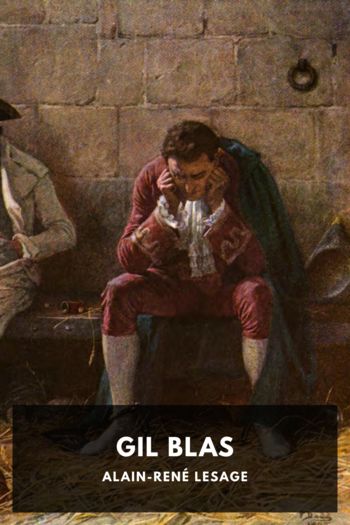The Twilight Zone by Nona Fernández (inspirational books .txt) 📗

- Author: Nona Fernández
Book online «The Twilight Zone by Nona Fernández (inspirational books .txt) 📗». Author Nona Fernández
This empty theater is a parenthesis in time, a spatiotemporal capsule, a spaceship in which my mother and I travel at a pace set by a clock telling a different time, the same as the one marking the hours at Barbara Jean Trenton’s mansion in The Twilight Zone. One day her faithful agent comes to visit and she isn’t in the living room. The bottle of whiskey is on its side on the floor and the projector is on, spinning one of the old reels she always used to watch. The agent glances at the movie playing on the screen. In it, everything is the same as always—same lines, same actions, same images—though with a single creepy difference. Barbara has crossed the threshold of the known, entering a dimension as vast as space and as timeless as infinity. Halfway between light and shadow, between science and superstition. Barbara Jean Trenton no longer inhabits time as we know it. She has immersed herself in the past, and from the screen she smiles at her faithful friend, bidding him farewell. Her smile is captured in celluloid, an indelible trace.
The theater vibrates with another explosion from Avengers 2. Out of the corner of my eye, I see my mother watching the images, moved, not registering the racket from above, probably because she’s deaf in one ear. In the film, the lawyer stops the cassette and the voice of the man who tortured people can no longer be heard. It doesn’t matter, I’ll capture it here. Next come the sequences I know so well, anchoring me to this red seat like a safety belt. Again the bombing of La Moneda. Again the proclamations and the National Stadium and the detainees.
I’m a lonely actress past her prime, drinking whiskey all day long and trying to decipher ancient images that repeat over and over again.
My mind is back at Nido 18.
And Nido 20. And Remo Cero.
Also Colina and the spiral staircase at AGA that led to the lower level.
I had never seen one.
Before we went down they lined us up.
They told us we had to forget everything we were about to see.
Wipe it from our minds.
Whoever remembered was a dead man.
I liked the sea.
I wanted to be a sailor, so I could go to sea.
But instead I joined the air force.
At first I was at the Colina base. I wasn’t there for long.
Then they sent me to AGA, the Air War Academy, to guard prisoners of war.
That’s what they called them: prisoners of war.
When we got there they made us line up.
We went down that pipe-filled spiral staircase to the lower level.
It was like a submarine, I thought.
Many people were standing there.
They were blindfolded and handcuffed.
Others, the most valuable prisoners, were in the hallway.
There were signs on their backs.
“No food or water.” “48 hours no sitting.”
I had never been without food or water.
Had never stood for so long.
In my few months of military service
I had never experienced anything like that.
On the first night an alarm sounded.
Everything went dark.
Fifty machine guns had been
placed in strategic spots.
From the same direction, floodlights came on.
The light was dazzling. My eyes stung.
In such a situation we’d been instructed
to make all the prisoners lie down on the floor
with their hands behind their heads.
Even the ones with signs that said “48 hours no sitting.”
If the officer gave the order
we were supposed to shoot and kill the detainees.
I had never killed anyone.
The officer on duty walked by with a grenade in his hand.
He was looking at us, not the prisoners.
He released the safety on the grenade and said that if we were thinking about rescuing or helping any of the prisoners we’d better forget it.
That if anybody made a move he would throw the grenade in the hallway.
That if anybody made a move every damn fool in the room would die.
I was stuck there for six months.
Then they took me to the houses.
Nido 18. Nido 20. Remo Cero.
I was nineteen years old.
There were three Flores brothers. Or at least there were three who got arrested. Boris Flores, Lincoyán Flores, and Carol Flores. The story of their detention is so similar to the others I’ve already imagined that at this point they all blur and run together in a montage, predictable and even a little dull.
It’s noon and young Boris is at the door when he sees four cars and a police van turn slowly down his street. A national police officer with a hood pulled over his face leans out of the first car, pointing to the house. Young Boris knows what’s coming, and he’s terrified. He darts nervously inside, hoping to escape, but any attempt to hide is pointless, because from now on what follows is the unspooling of images already witnessed and recorded here before. Men with mustaches getting out of cars, men in civilian garb breaking down the door, moving through the





Comments (0)